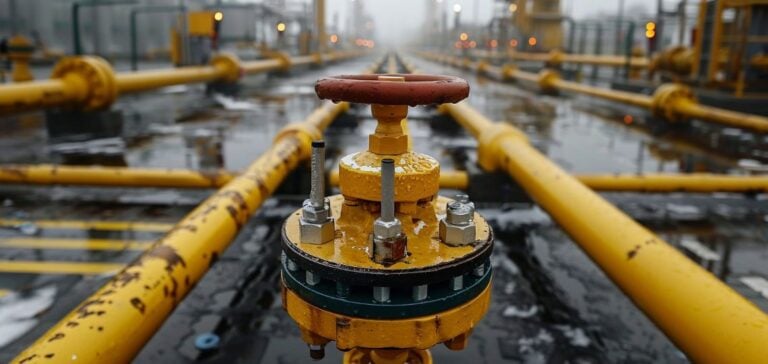The energy crisis plaguing Transdniestria, a pro-Russian separatist region in Moldova, is worsening. Since the cessation of Russian gas deliveries on January 1, this territory of approximately 500,000 inhabitants has faced heating, hot water, and electricity shortages. Moldova, spared thanks to its imports from Romania, has recently received an unexpected request: Transdniestria is asking for gas supplies to address the emergency.
Vadim Krasnosselski, the separatist leader of Transdniestria, sent an official letter to Moldovan President Maia Sandu on January 18. This letter, which Krasnosselski claims remains unanswered, calls for quickly defining a mechanism to allow the purchase and delivery of natural gas.
Moldova’s conditions and legal challenges
When questioned on the matter, Moldova confirmed it is reviewing the request. “We need to ensure that any agreement complies with national and international legal standards, particularly European regulations and sanctions against Russia,” a presidential spokesperson stated. The spokesperson also highlighted the potential involvement of third-party companies, adding further complexity to the issue.
Speaking on public television, Moldovan President Maia Sandu, a pro-European leader, emphasized the importance of verifying the identities of the companies involved before making any decisions. These checks are necessary to avoid breaching Moldova’s commitments to the European Union as the country seeks closer integration with the bloc.
A post-Soviet legacy at the heart of the crisis
The situation in Transdniestria is rooted in a tense historical context. The region has been beyond Moldovan control since a war in 1992, following the collapse of the USSR. Until recently, Russian energy giant Gazprom provided free gas to the territory, a strategic support for the separatists against Chisinau.
However, Russian deliveries ceased after the transit agreement between Moscow and Kyiv, which enabled gas to flow through Ukraine, expired. Gazprom’s refusal to use alternative routes stems from a financial dispute over Moldova’s debt.
An energy and geopolitical dilemma
For Chisinau, responding to Transdniestria’s request poses a significant dilemma. While a solution might alleviate a humanitarian crisis, it also raises political and strategic questions. By aligning with European regulations, Moldova aims to distance itself from Russian influence, complicating any effort to meet the needs of the separatist territory.
The debate surrounding this request reflects the geopolitical tensions shaping the region, as the European Union and Russia remain key players in this energy standoff.






















